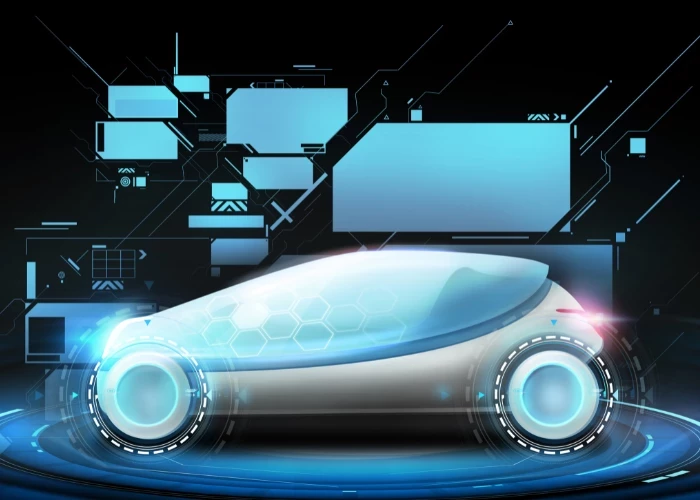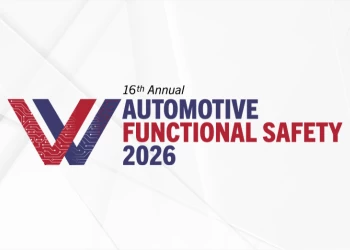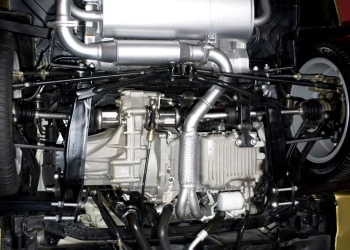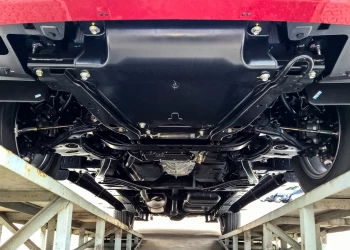The Times They Are A-Changing...
Add bookmarkCould the father of social commentary, Bob Dylan, have been thinking of the motor industry when he penned these thought provoking words in the ‘60’s? Looking at events unfolding across the globe one could be forgiven for thinking he did indeed have a crystal ball.
Martin Winterkorn may well have been thinking; "Don't stand in the doorway, don't block up the hall. For he that gets hurt, will be he who has stalled..." on his way to the board meeting that finally saw the exit of Ferdinand Piìch
Piìch had sought to force out Winterkorn as Volkswagen’s chief executive. But he (Winterkorn) wasn’t ready to roll over, and with the support of other members of the supervisory board handed Mr. Piìch, who is 78, a shocking defeat.
Piech’s legacy: a burden or a blessing?
The exacting, wilful Piìch was feared by subordinates and obsessive about his company’s products. He was also remarkably successful, leading Volkswagen from near bankruptcy in the early 1990s to No. 2 automaker in the world, after Toyota: And like Steve Jobs at Apple, Piìch was among a handful of executives whose personal stamp was unmistakable on the companies they ran.
While Piìch’s departure resolves the internal power struggle at Volkswagen the formidable challenges that the automaker faces remain; including slim profits, dwindling market share in the United States and an organization that critics say has become bloated and inefficient.
Volkswagen manufactures everything from Skodas that sell for less than 9,000 euros, to Bugatti super sports cars that sell for more than 900,000. The company, based in Wolfsburg, Germany, also makes MAN and Scania trucks, Ducati motorcycles, Bentley luxury cars, and Lamborghini sports cars.
Earning a profit of just 6 percent on sales, compared to about 9 percent for Toyota, most of Volkswagen’s earnings come from its high-end brands. The Porsche division, with sales last year of about 200,000 vehicles, earned more than Volkswagen-brand cars with sales of more than six million.
Image Credit: www.4-traders.com
With Piìch gone, there are likely to be some, who question the business logic of the empire he built. According to Karl Brauer, a senior analyst at the automotive research company Kelley Blue Book; "A lot of his obsessions were distractions that cost money." Nevertheless, Mr. Brauer believes Volkswagen’s size could still prove to be an advantage, because the company benefits from efforts to share components among its wide array of vehicles.
With Mr. Piìch gone, there could be a power vacuum, and instability as the shareholders and top managers argue about strategy. These could include calls from shareholders or members of the Porsche family to dismantle some of the empire that Piìch built. Some, even Piìch himself, could decide the time is right to cash out.
Some insiders such as Mr. Dudenh÷ffer, a professor and former Porsche employee, believe "Volkswagen is now back where it was 15 years ago."
Could Sergio Marchionne change the face of the industry?
Trying to build a Piech type empire, Fiat Chrysler Automobiles boss Sergio Marchionne may be forgiven for thinking; "don't criticize what you can't understand" after being rebuffed by General Motors’ CEO Mary Barra, following his suggestion that the two motoring giants form a mega merger.
At the end of April, as his company reported lower-than-expected first-quarter results, Marchionne made a public plea to shrink the number of players in the global auto industry.
A few weeks later two people came forward claiming to have knowledge of an email sent by Marchionne, detailing how global carmakers needed to consolidate to save money and suggested a merged GM and Fiat Chrysler would cut billions of dollars in costs and create an automotive giant. Although the concept holds merit, such grandiose schemes are all about timing; And in this case the timing’s definitely off.
Will BREXIT stall ailing German vehicle exports?
As the UK prepares to make a decision on its future within the European Union, German companies are beginning to count the cost of a possible exit; with automakers such as the BMW Group possibly having the most to lose.
Merkel and the European Commission must "do everything they can to keep Britain" in the EU, said Matthias Wissmann, president of the VDA, the German auto industry lobby group.
Legislation to allow a UK referendum on the country's EU membership to take place by the end of 2017 following a renegotiation of membership terms was recently given priority in Cameron's government. The UK is Germany's most important trade partner in Europe with a surplus of 42 billion euros in 2014, second only to the U.S., according to the Federal Statistics Office in Wiesbaden, Germany.
About 20% of all cars produced in Germany, valued at almost 18 billion euros, went to UK drivers last year, making the country the top export destination by volume for Germany's automotive industry since 2001, data from the VDA show. A UK exit may cause German car exports to the UK to contract by about 2 percent in the years to 2030, according to an April 27 study by the Bertelsmann Foundation.
With the UK being home to BMW's Mini plant in Oxford and Volkswagen Group's Bentley unit in Crewe, it's not just Germany that stands to lose. While a UK exit may cause German car exports to fall, it may also mean 300 billion euros in lost economic growth by 2030 for the UK, according to Bertelsmann's findings.
UK vehicle export destinations:
Image credit: www.statista.com
German supplier Robert Bosch has already begun to weigh-up the options for its business as a result of a potential exit by the UK, which is also the fourth-biggest export destination for German machinery equipment.
"The UK is of great importance to the single market," Uwe Raschke, Bosch's head of consumer goods, said. "Should the UK decide to leave the EU, Bosch would need to study the consequences and adapt to them."
Although these events in themselves are tumultuous, could they be symptomatic of deep rooted problems in the automotive industry? Are the costs of meeting ever-tightening emissions regulations and customer expectations forcing manufacturers to the brink of an industry meltdown that will cull many of the top players?
In the words of Bob Dylan: "There's a battle outside and it is ragin'
It'll soon shake your windows and rattle your walls: For the times they are a-changin'."
Sources:
Fiat Chrysler CEO approached GM about a merger – Benchmarketreporter (Steven Goodstein)
As Boardroom Struggle Ends, Volkswagen Looks to the Future - New York Times (Jack Ewing)
Germany Counting U.K. Exit Cost Shows Autos May Lose Most – The Washington Post (Elisabeth Behrmann and Brian Parkin)





















